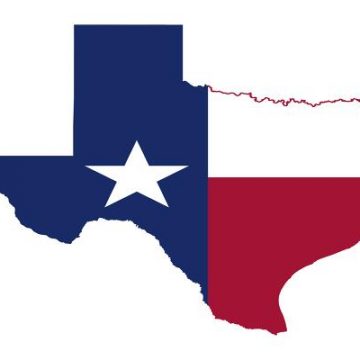
The rise of private “poker clubs” in Texas has drawn its share of attention from the poker community and, unfortunately, the law enforcement community. Now one of those who would make the laws – a Houston politician – has sounded off on the subject, made more important after the shooting of a player at one of the clubs in Austin.
In an interview with a sports/talk radio show in Houston earlier this week, Houston city councilman Greg Travis sounded off on the subject. Talking to Ken Webster of Poker Lab Radio on SportsTalk 790, Travis said he wasn’t against poker or gambling but that the way that the poker clubs operate is “illegal under Texas law.” Those laws are as such:
The clubs are private and open to members only.
The clubs do not take a rake of each hand.
The members are playing against each other and not against the house, with each player having the same chance at winning and losing.
Travis believes the clubs are breaking the law in the fact that they charge fees to their customers. Most of these clubs charge a “membership fee” for entry into the facilities or will charge a “seat rental” fee for the right to have a seat. The clubs also sell food and drink (both non-alcoholic and alcoholic) to their members and, along with the memberships or seat rentals, earn revenues for the clubs. That, in Travis’ view, breaks the Texas laws in that the establishment sees an “economic benefit” from gambling.
Travis is rock solid in his beliefs on this subject. When asked how he would vote if a bill were to come in front of the Houston City Council, Travis firmly stated that he “would vote no” because he believes that the current rooms are breaking Texas law. “If they want to make it legal, they need to do that through their state representatives,” Travis concluded.
Perhaps demonstrating the need for some regulation of the poker clubs in the Lone Star State was the shooting of a popular online player outside one of the establishments in Austin. Early Monday morning outside the Texas Card House in Austin, 22-year old Tom ‘3betpanda’ Steinbach was taken to St. David’s Round Rock Medical Center with what were life-threatening injuries at the time. Since that time, Steinbach has been reported to be in stable condition. Police believe that the reason Steinbach was shot was his refusal to succumb to a robbery and, as of this time, there have been no arrests.
Texas has long had a difficult time with gambling, even though one of the top games is named after the state. Poker legends such as Doyle Brunson, “Amarillo Slim” Preston, T. J. Cloutier and others have regaled the poker world with tales of traveling through the state and sometimes having weapons drawn on them in games or, worse yet, being beaten for their bankrolls. But, for several years, the underground games in Texas were some of the best in the country.
The first “poker clubs” started showing up a couple of years ago, convinced that they were legal operations in that they weren’t taking anything from the actual act of gambling on the felt. Over the past couple of years, several of the major cities in Texas have opened the doors on “poker clubs” with such names as the Post Oak Poker Club and the Mint Poker Club (Houston), the Texas Card Club (Austin), Champions Poker Club (San Antonio), and Stax Poker Club (Waco). All these clubs are similar in that they are “membership only” clubs that provide a place to play poker for their groups, with the establishment making money from those memberships and the sale of food and drink (which, at some of the rooms, is excellent, from local reports).
This hasn’t stopped some local law enforcement from trying to shut down the action. In McKinney, the FTN Poker Club was shut down after local police said they would enforce gambling laws that not only could see its owner arrested but also the owner, Jody Wheeler. Prior to the closure of the FTN, two other clubs were closed in Plano after law enforcement stated it would raid the locations for gambling violations.
State politicians and the Governor, Greg Abbott, have shown absolutely no interest in trying to settle this issue. There has been no legislation introduced by any politician in the Austin statehouse and Abbott has already stated that he sees no need to reexamine Texas’ gambling laws. As such, the problems continue, with different cities across the vast Texas landscape interpreting the laws and determining which Texas poker clubs stay open and which close.















